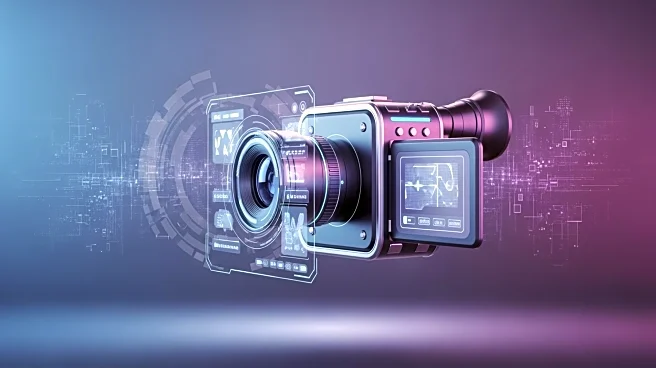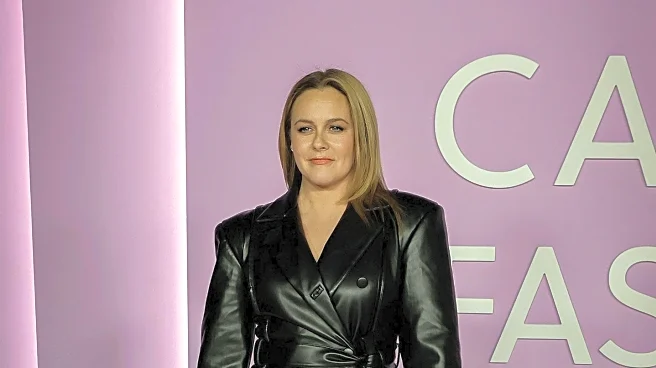What's Happening?
AI video generators are becoming a significant trend in the tech industry, with major companies like OpenAI, Google, and Adobe developing their own models. These tools use generative AI to create short
video clips from text or image prompts, offering new creative possibilities. Notable models include Sora by OpenAI, Veo 3 by Google, and Adobe Firefly, each providing unique features such as synchronized audio and customizable video settings. These AI-generated videos typically range from five to ten seconds in length and are part of a broader movement towards integrating AI into creative processes.
Why It's Important?
The rise of AI video generators represents a major shift in content creation, potentially impacting industries such as marketing, entertainment, and social media. By automating video production, these tools can reduce costs and time associated with traditional video creation, offering businesses and creators new ways to engage audiences. However, the technology also raises ethical and legal questions, particularly concerning the use of AI-generated content and its implications for copyright and privacy. As these tools become more prevalent, they could redefine how visual content is produced and consumed.
What's Next?
As AI video generators continue to evolve, further advancements in technology and features are expected. Companies may introduce more sophisticated models with enhanced capabilities, such as longer video durations and higher resolutions. Additionally, regulatory frameworks may develop to address the ethical and legal challenges posed by AI-generated content. Stakeholders, including tech companies, policymakers, and content creators, will likely engage in discussions to balance innovation with responsible use. The ongoing development of AI video tools will be closely watched by industries reliant on digital media.
Beyond the Headlines
The integration of AI in video production could lead to broader cultural shifts, influencing how society perceives and interacts with digital content. As AI-generated videos become more common, there may be changes in consumer expectations and standards for authenticity in media. This technological advancement also prompts discussions about the role of human creativity in an increasingly automated world, challenging traditional notions of authorship and originality.









